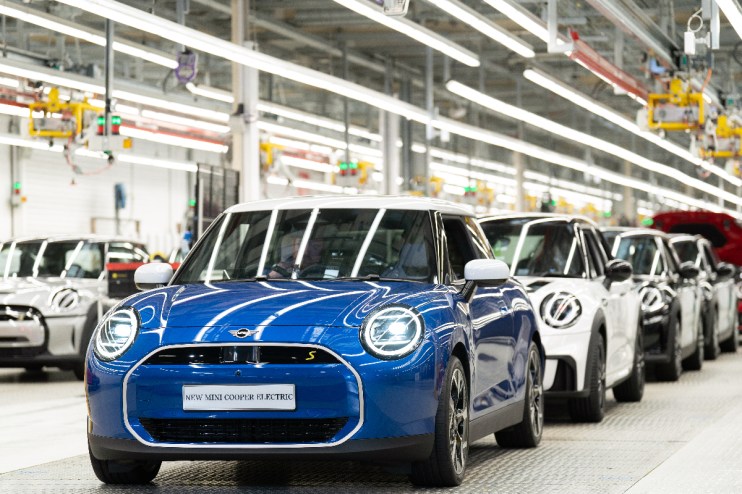New car market in UK up 2.6 per cent in 2024, figures reveal

The UK’s new car market recorded its second successive year of growth with a 2.6 per cent rise in registrations in 2024, new figures show.
Industry body the Society of Motor Manufacturers and Traders (SMMT) said around 1,953,000 new cars were registered last year, compared with 1,903,000 in 2023.
Growth was delivered entirely by purchases for fleets owned or leased by businesses or other organisations, which were up 11.8 per cent.
However, demand from private buyers fell by 8.7 per cent to around 746,000 units.
That was below the level seen in 2020, when coronavirus pandemic-related restrictions shut down the market for three months.
Total uptake by businesses running no more than 25 vehicles fell by 3.1 per cent to around 43,000 units.
SMMT chief executive Mike Hawes said private buyer demand is “still very, very weak”.
He claimed many consumers felt there was “every reason” to hold off making a purchase because of the “economic backdrop” and “confusion about what type of vehicle to buy” caused by mixed messages from governments over the last two years.
Labour has committed to reverse Rishi Sunak’s decision in September 2023 to delay prohibiting the sale of conventionally fuelled new cars and vans from 2030 until 2035.
Pure battery electric new cars made up 19.6 per cent of the new car market in 2024, with around 382,000 units.
Under the government’s zero emission vehicles (ZEV) mandate, car-makers were required to ensure 22 per cent of their sales were pure electric last year.
The target rises each year, such as to 28 per cent for 2025.
Failure to reach the required level will result in a £15,000 fine per polluting car sold above the limit, but manufacturers can avoid penalties by using flexibilities, such as taking into account their sale of large numbers of low-emission petrol and diesel cars.
The Department for Transport (DfT) said it expects the flexibilities mean “all manufacturers will meet their targets for 2024”.
The SMMT said only one in 10 private buyers chose an electric vehicle (EV) in 2024.
But EV lobbyists noted this does not include employees who purchased cars through salary sacrifice schemes to benefit from government financial incentives.
Petrol remained the most popular type of new car among private buyers, with a market share of 61.0 per cent.
免责声明:投资有风险,本文并非投资建议,以上内容不应被视为任何金融产品的购买或出售要约、建议或邀请,作者或其他用户的任何相关讨论、评论或帖子也不应被视为此类内容。本文仅供一般参考,不考虑您的个人投资目标、财务状况或需求。TTM对信息的准确性和完整性不承担任何责任或保证,投资者应自行研究并在投资前寻求专业建议。
热议股票
- 1
- 2
- 3
- 4
- 5
- 6
- 7
- 8
- 9
- 10